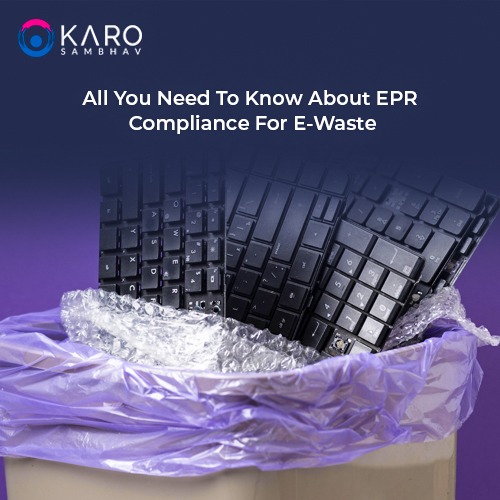Sustainable E-Waste Management: Why It Matters and How To Implement It
The present-day world displays
how more and more people are indulging in technology, and as a result, there is
a simultaneous increase in e-waste. Approximately 50 million tonnes of e-waste
is accumulated annually, with a mere 20% of the same being recycled. This turns
out to be a critical threat to the surrounding and human health since e-waste
comprises toxic materials like cadmium, lead, and mercury.
Extended Producer Responsibility - EPR in waste management is one answer to this challenge. EPR is a policy concept that holds producers responsible for their products' whole lifecycle, including disposal. Manufacturers would be incentivized to devise items with recyclability in mind and to accept responsibility for their disposal if EPR was used in e-waste management.
Through the
E-waste Management Rules 2016, India has applied EPR in
waste management, including e-waste. These laws require producers to
collect and dispose of e-waste in an environmentally responsible manner, and
they also establish a system for registering and authorising e-waste
recyclers.
When it comes to proper
adherence to recycle e-waste India, there are numerous initiatives created by
the government as well as private sector for the same. For instance, e-waste
collection drives are organized in schools and residential areas, and e-waste
recycling plants are being set up across the country. Additionally, some
companies offer buyback or exchange programs to encourage consumers to recycle
their old electronics.
To summarise, sustainable e waste management is critical for guarding the environment and human health. EPR in waste management, particularly e-waste, can aid in maintaining manufacturers accountable for product disposal. E-waste recycling is also critical, and India has taken steps to make it easier for customers to discard their old gadgets. It is up to every one of us to take responsibility for our e-waste and ensure that it is disposed of responsibly.



Comments
Post a Comment